All photos by Patrick Elicano for RICE Media.
There are some things that we can attest to our sleep habits, or lack thereof–the rising costs of living, the daily onslaught of deadlines, and the big question of what comes tomorrow.
Yet, with only 24 hours, and with our jobs and families, a question that always boggles me is how we manage to fit all of that in a single day–while not forgetting to get enough sleep at night. It’s no wonder that the majority of Singaporeans are clocking in only 4-7 hours of Zzzs nightly. (I’m part of that majority.)
The side effects of sleep deprivation–from impaired cognitive function to compromised emotional resilience–are as profound as they are often underestimated; and the struggle is definitely real.
We’re overstimulated, fatigued and simply too tired to get proper rest. I figured I could find out why it’s so difficult amongst my friends and myself.
Wide Awake After Hours
At 31, I clock in around four to five hours of sleep every night. Even as I know a good 60 to 70 percent of Singapore faces the same predicament as me, I lay wide-eyed, guilty and awake knowing that somehow things have to change for the long run–eye bags, lethargy, all of that and more.
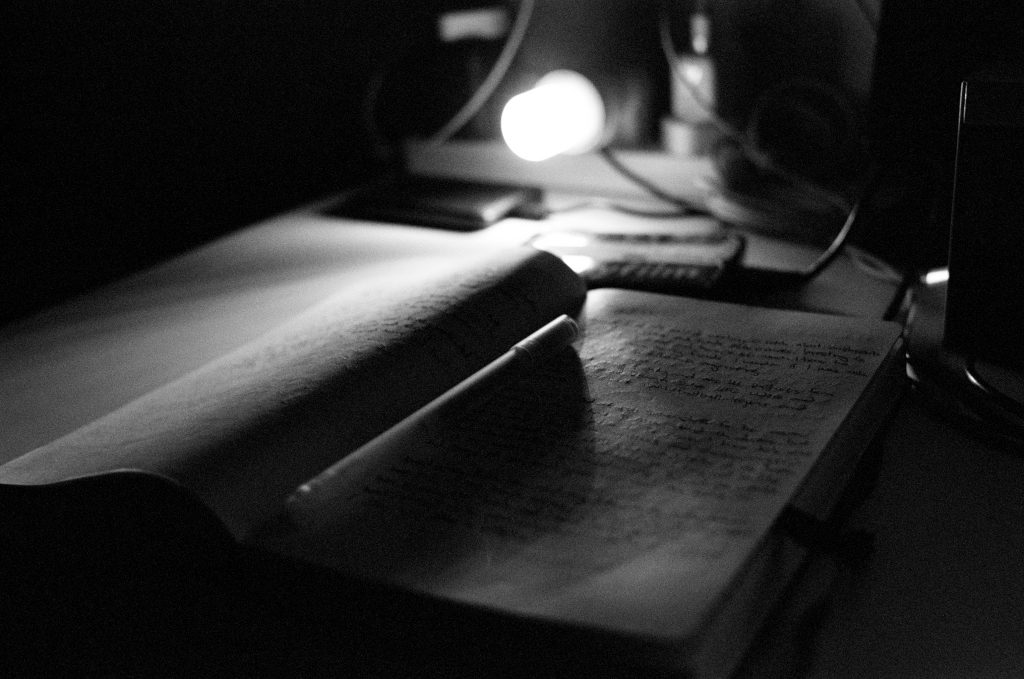
My habit of spending late–and oftentimes, sleepless–nights dates back to the past five years of working in an ad agency. The daily overload of stress often led me to think of work even when I was lying in bed nightly. This particularly peaked during the pandemic, when the hours between work and life, blurred. And I found myself at a daily 9-5 routine–only that it’s 9 AM, to 5 AM.
The countless hours I spent wide-eyed awake at the end of the day compartmentalising deadlines and thinking about the next few days has seeped in till today–now especially that I’m freelancing.
When you’re left alone at night, it’s just you, your thoughts and your feelings. Remember what I said about compromised emotional resilience?
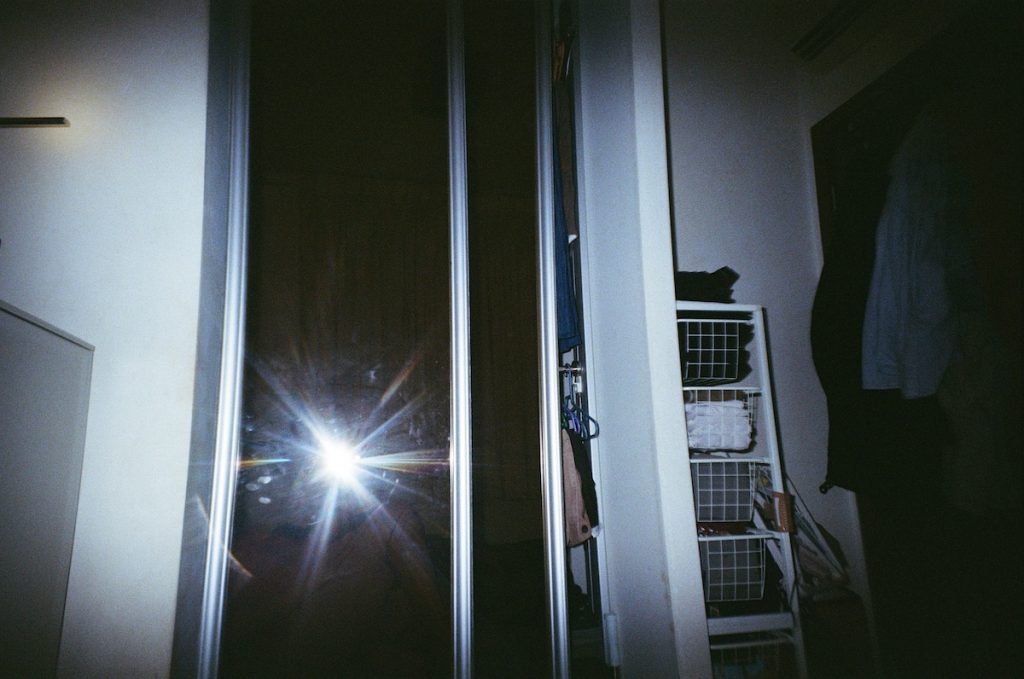
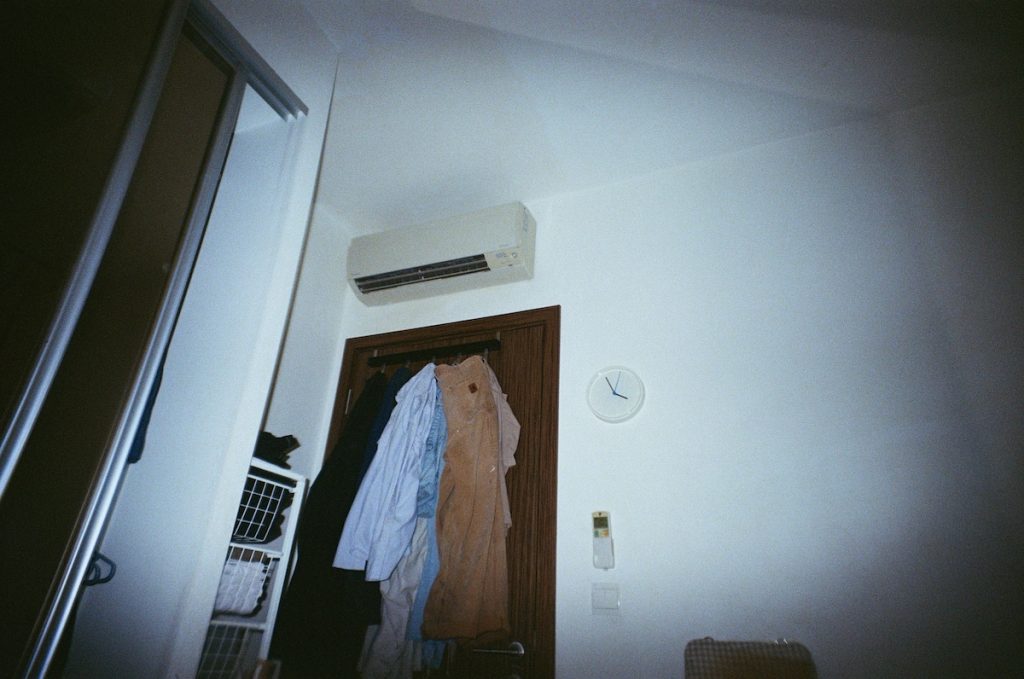
This thinking trap is like an endless pit with many worries and anxieties like “not being able to provide for me and my partner”, “once this project runs up when will the next paycheck come in” and the age-old question of “when are you getting married” vs the reality of needing to pay bills and the absurd rent prices these days.
It doesn’t help too that with such a loaded day, I would only often have time to “retreat” to social media at night. The doomscrolling that follows only fuel these worries and anxieties further. And frankly, I’ve seen “sleep” as just a tiny blip in my day, rather than something that I actually need.
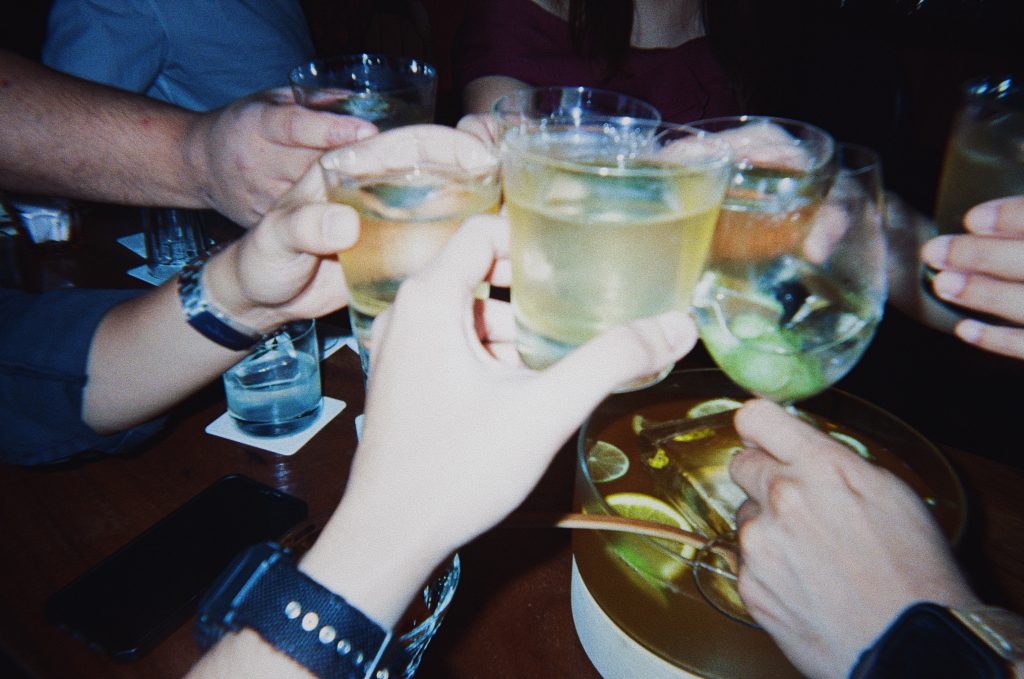
Throw in the other factor that all these “working” means I have this desire to enjoy harder, and the copious amount of nicotine and alcohol–along with all the caffeine consumed from countless cups of coffee, adds up to this harrowing loop of sleeplessness.
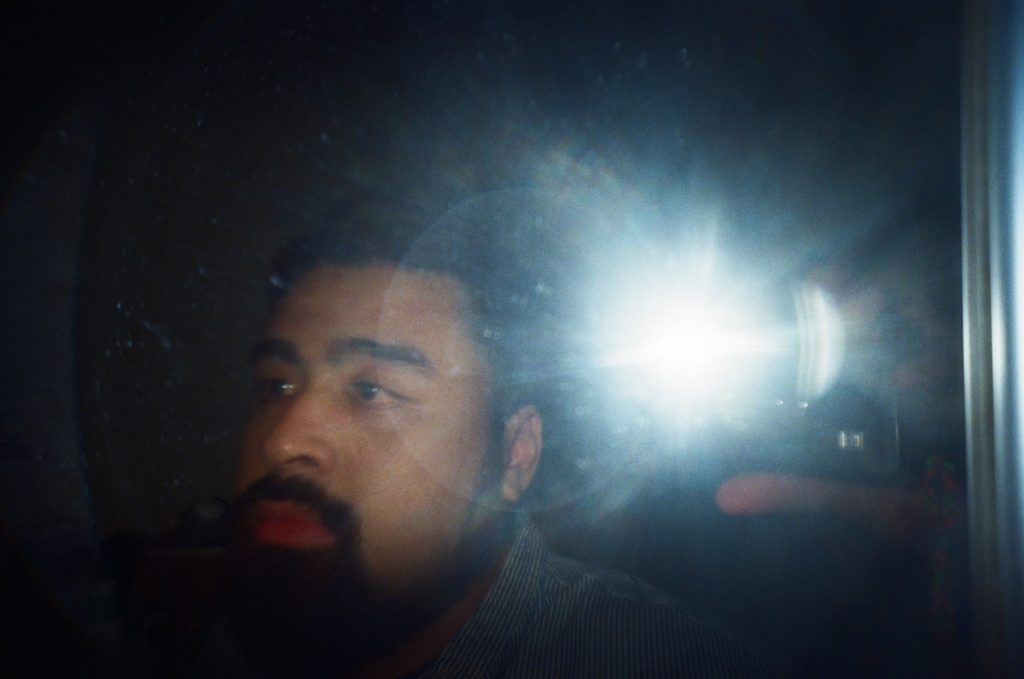
Even though I’m physically tired, most of my nights would look like me just spending hours till I’m mentally and emotionally spent–till I fall asleep mid-thoughts. And that cycle repeats itself as the sun rises. I feel physically lethargic, and I find myself mentally drained throughout the day.
I’ve always wondered whether this was a generational thing–whether sleeplessness has been exacerbated by life in the workforce, or if it’s so much more.
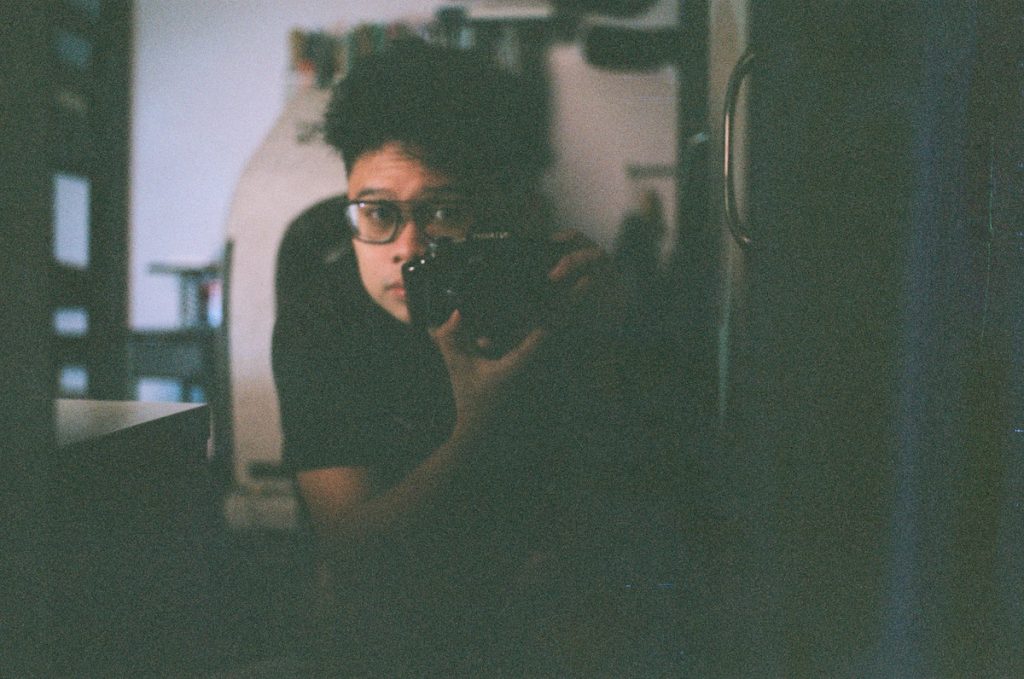
On one of those late sleepless nights, I noticed another good friend of mine, Derick Matthew, 25, also actively online and posting in the wee hours. What was supposed to be a random “how are you” turned into discovering that he, too, was facing similar trouble, albeit in much different circumstances.
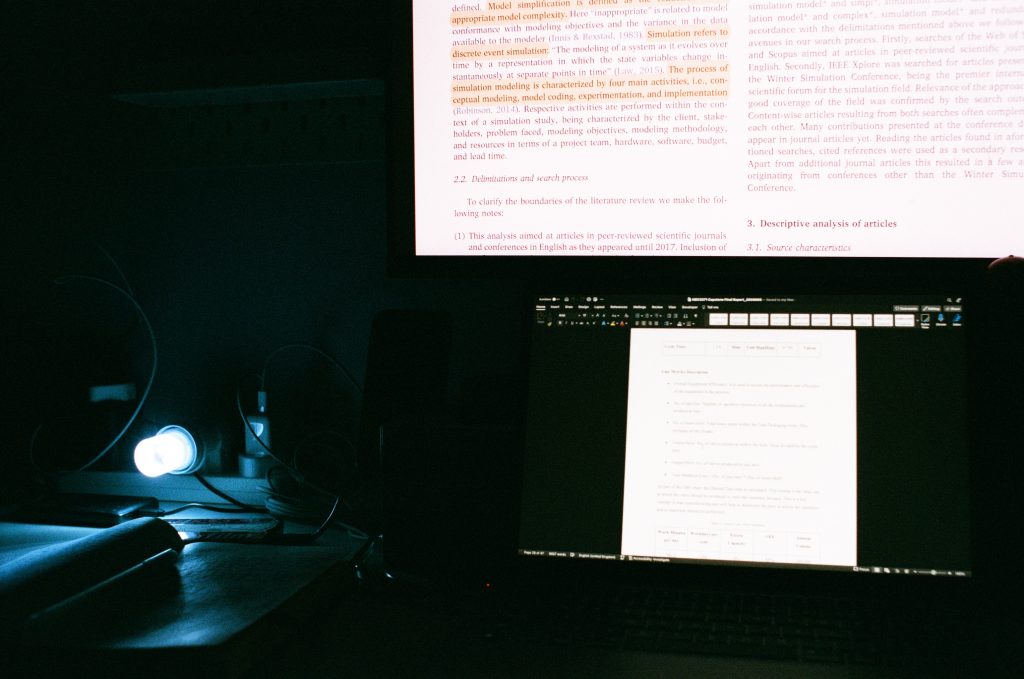
Currently pursuing a university degree, he shared that crazy deadlines and the mounting pressure to succeed meant plenty of late nights for him.
That, coupled with the timeless expectation of being a model son to his family–as the firstborn to parents who moved to Singapore for greener pastures from the Philippines–and his anxiety and pressure of repaying them also kept him wide-eyed awake after hours and only getting five hours of sleep daily.
With all that, he mentioned that he often put his health and wellness on the back foot, not really thinking about sleep, or tracking it, either.
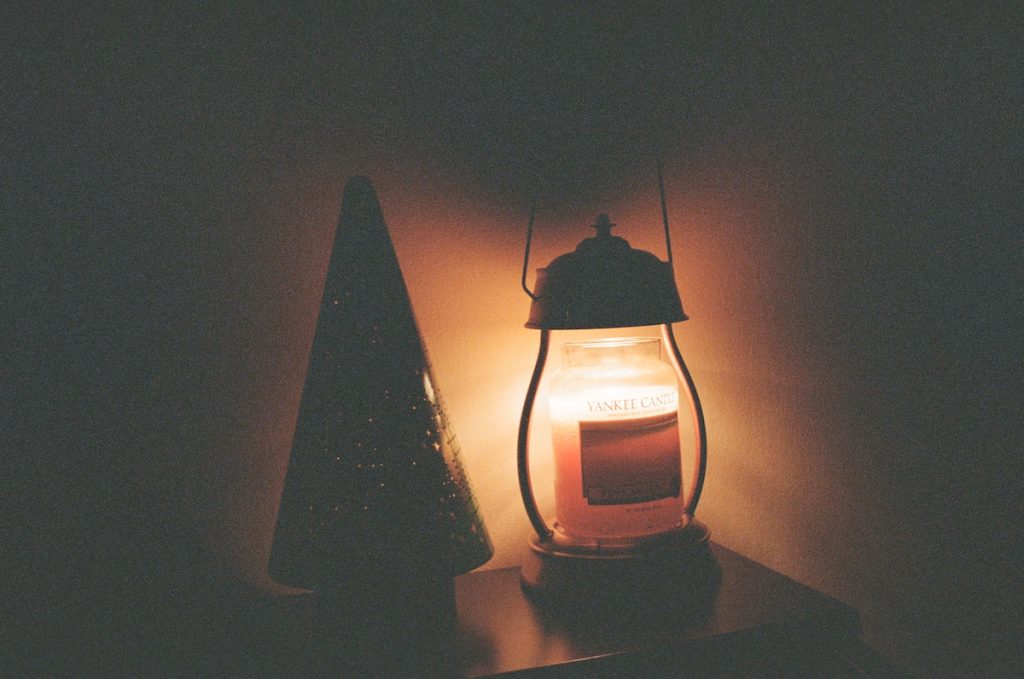
“As much as I want to care more about sleeping, there are only so many hours in the day,” he quirked. “I end up just having to hustle every day feeling exhausted and easily frustrated.”
NOTE: The following views come from personal observations over a long period. They are not scientific nor advised by a medical professional.
A Case of Sleeping Better
Knowing I wasn’t alone facing this predicament drove me to actually want to find better ways of sleeping better. And I recalled how my ad agency mentor, Teo Heng Yi, was open about his troubles with sleep.
I reached out to him in the interest of learning more–wondering if he was still encountering that. Thankfully, he’s since been having much better sleep.
He shared that he did a very crude study on himself for over a year, logging things like energy and activity levels as well as alcohol, nicotine and caffeine consumption. He also monitored all his sleep. All these stemmed from a similar harrowing “almost-clockwork” cycle of having terrible sleep patterns.
He studied the book ‘Why We Sleep’ by sleep expert Matt Walker and listened to podcasts by Andrew Huberman, and he learnt that it’s simple habits we subconsciously do to ourselves that lead us to feel depressed or anxious.
“I tell you. It really hits home when you look at your sleep graph. All you need to do is to drink just a unit of alcohol right before bed and it completely trashes your whole night’s sleep,” he shares.
“You can tell when you look at the graph it looks weird. Your NREM and REM cycles get all messed up which affects your mood for the next day and make it harder to regulate your emotions.”
From there, he learnt to turn things around for himself. The biggest gains that have led him to better sleep? Caffeine and alcohol regulation, cleaning your aircon, sleeping at the right temperature, having a hot shower before going to bed, sleeping before midnight and exposing yourself to sunlight in the morning.
Coming from a place where I always thought that I would need some kind of hard reset to get better sleep, this assured me that I too could try to sleep better. If these simple steps are things that I (and all of us) could do, then that eight-hour proper slumber would not appear to be a far-off dream.
Driven by that, I set out on a little test to see how these simple tips–coupled with tracking my sleep and activity levels with a Samsung Watch6 Classic–could lead me closer to getting better sleep.
Onward to Better Sleep
Day One
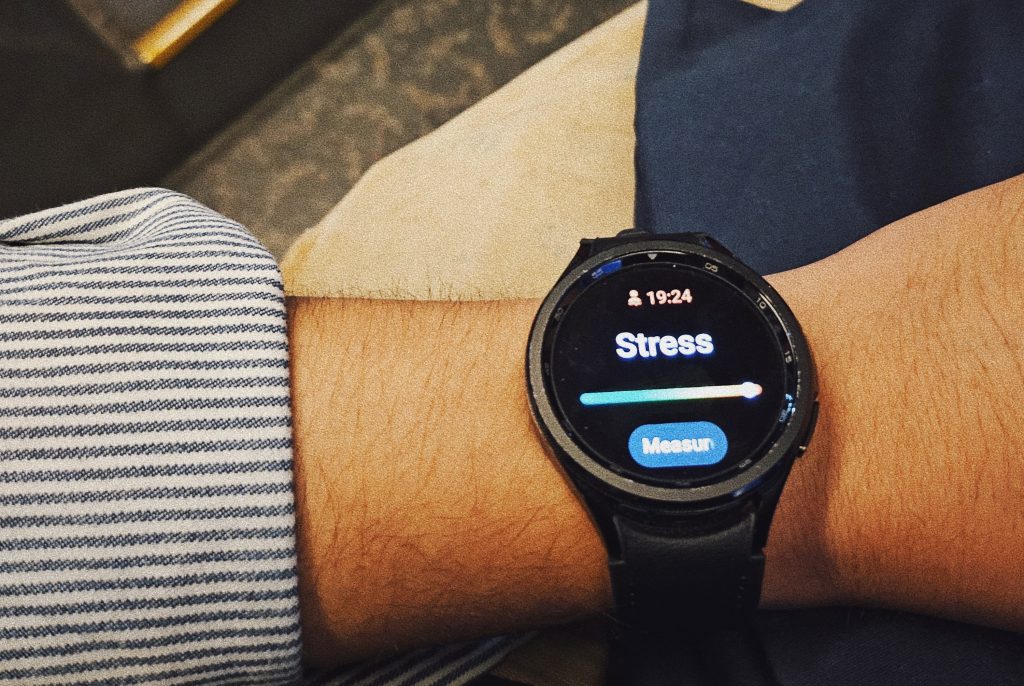
19:47, just finished a meeting and on the ride to a night out. Stress levels are peaking–this doesn’t look good.
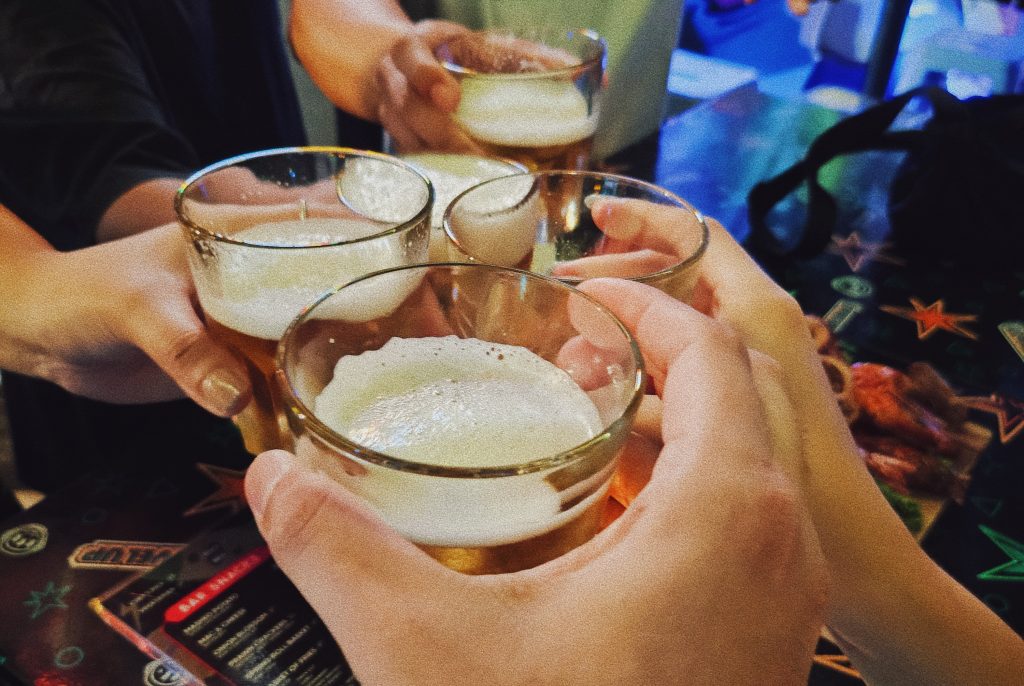
Friend’s birthday. I’ll be drinking there so I’m sure my sleep later won’t be the best.
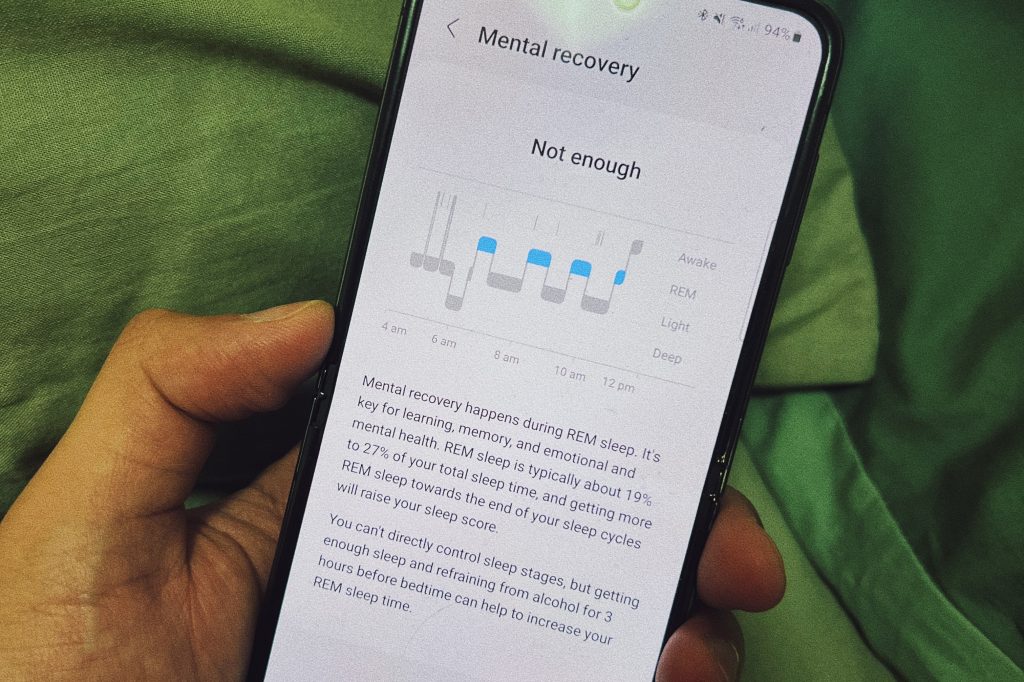
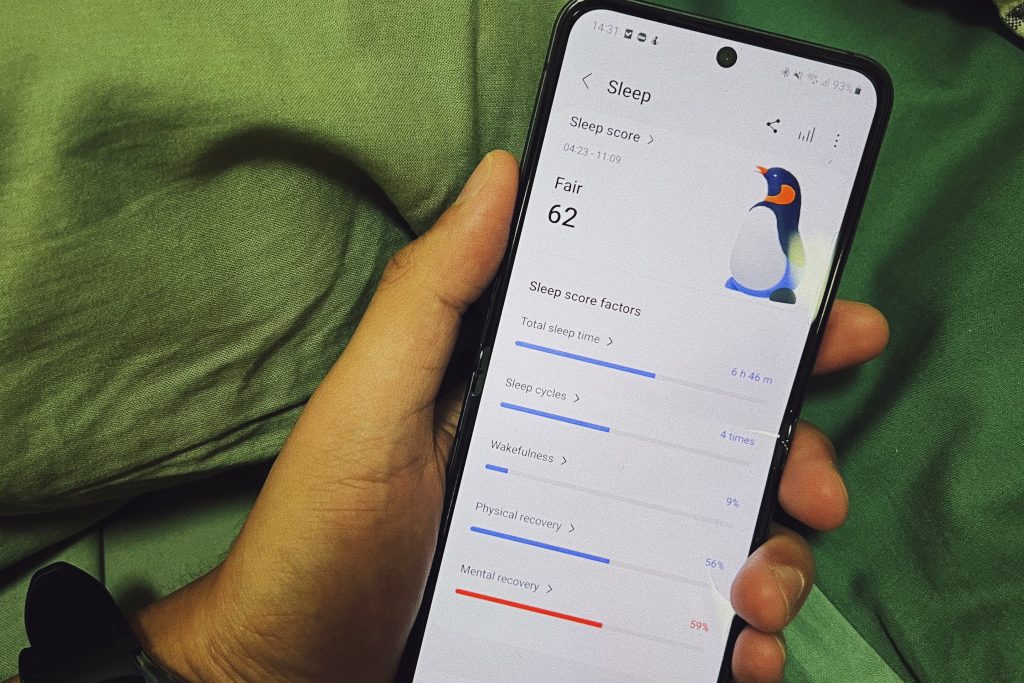
First day of tracking and true enough, “Mental Recovery” is not enough. Not enough REM Sleep; Samsung Health advising to refrain from alcohol three hours before bedtime. We know where I screwed up. Definitely still feeling pretty hazy.
Day Two
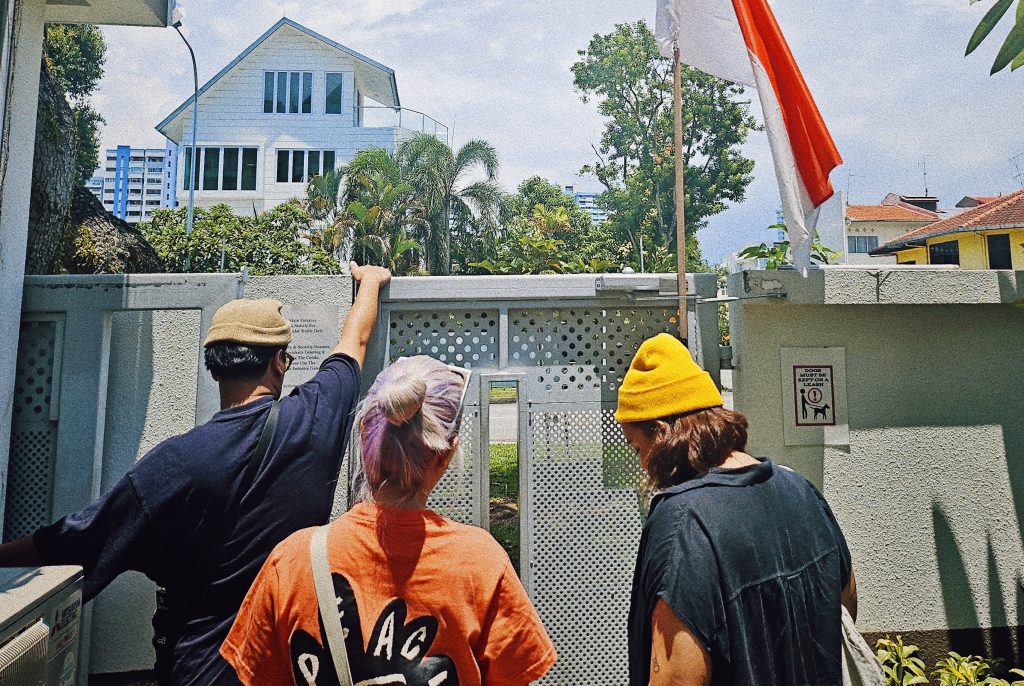
I’m going to try Heng Yi’s tip of getting morning light exposure–I’ll be tagging along my pals so we all get better sleep too.
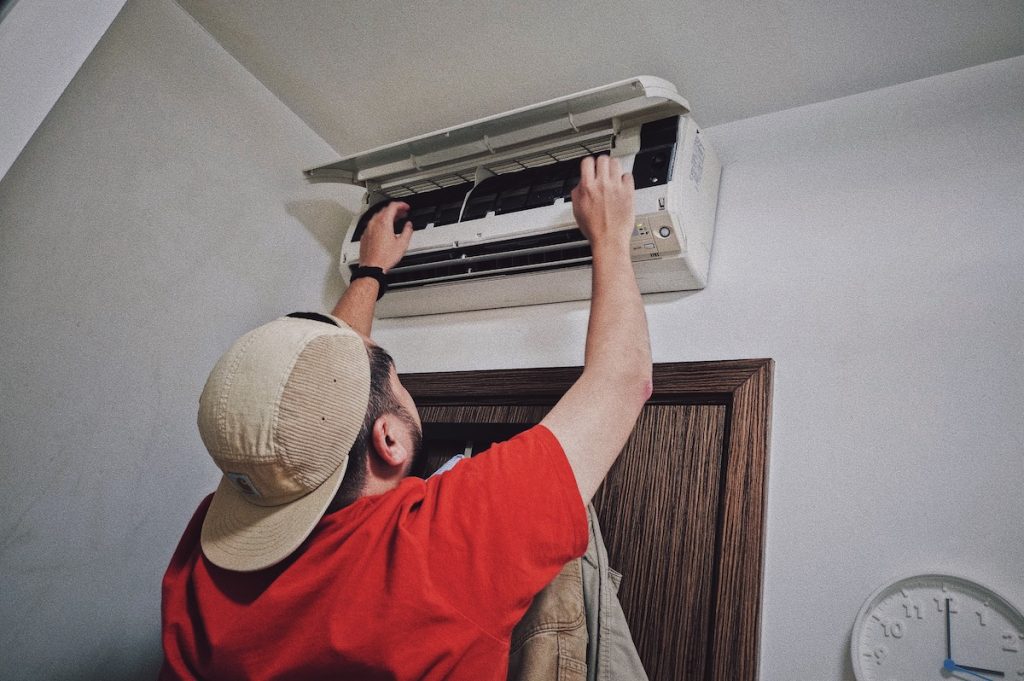
And hopefully cleaning the aircon helps a little.
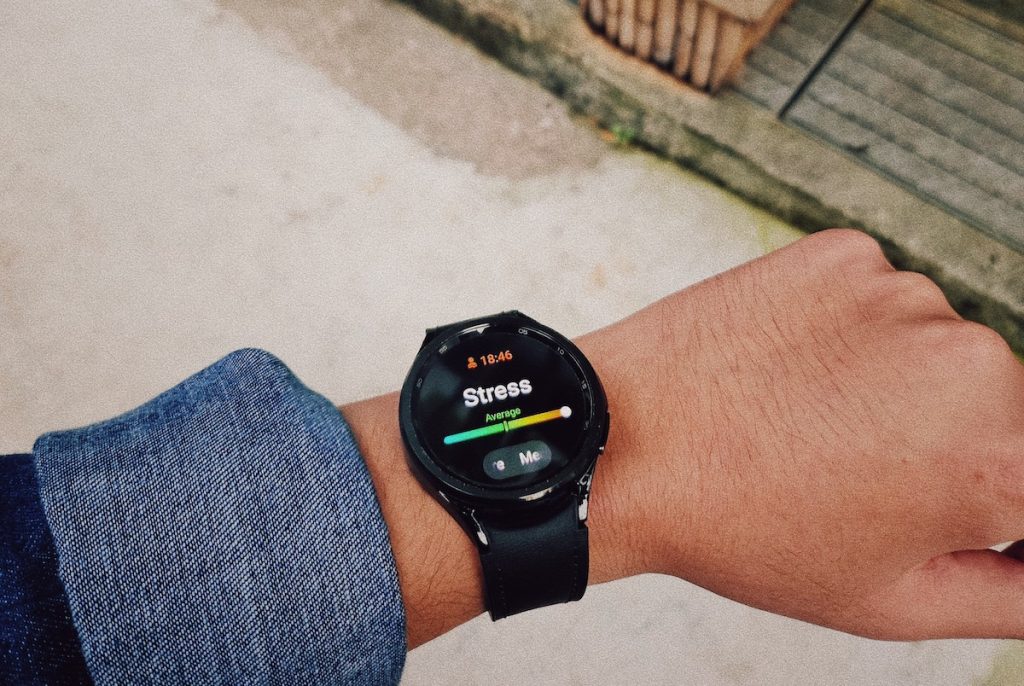
It’s almost the weekend so I’m not too stressed. I just need to get through today’s deadlines and I should be fine.
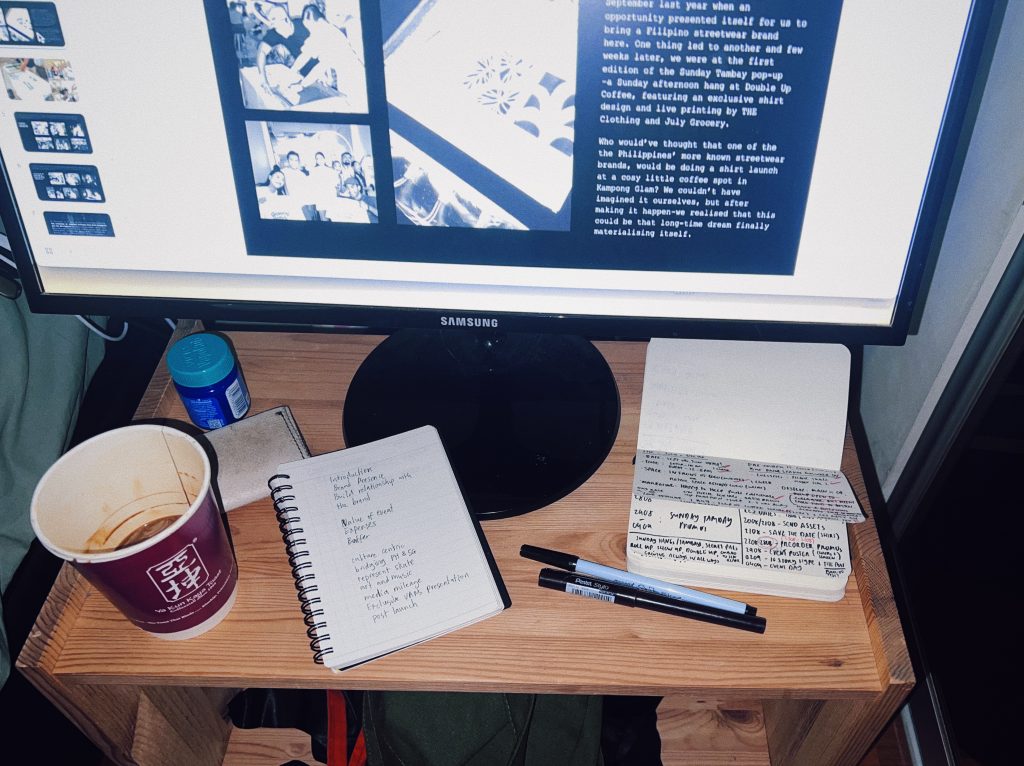
…or not. It’s almost four in the morning. I haven’t consumed alcohol but my coffee’s barely finished and it’s time for bed–not a combination that goes well hand-in-hand.
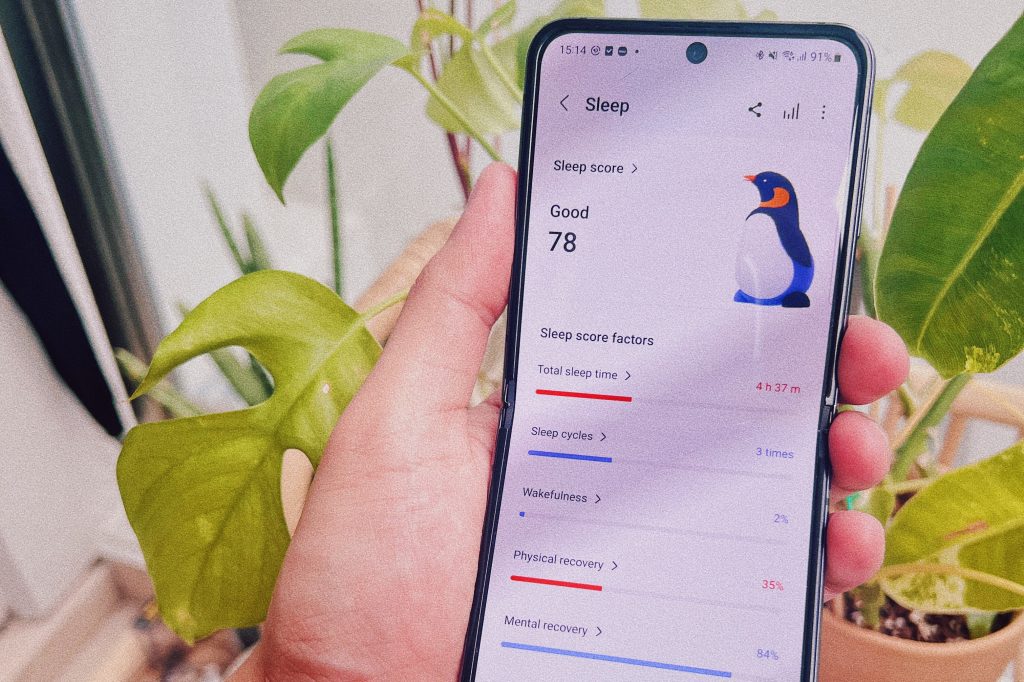
Day two of tracking sleep and trying tips seem to have somewhat improved. No alcohol definitely helped with my “Mental Recovery” but that late night working meant I didn’t get enough “Physical Recovery”. Sleep earlier, no caffeine. Got it. This lethargy has got to go.
Day Three
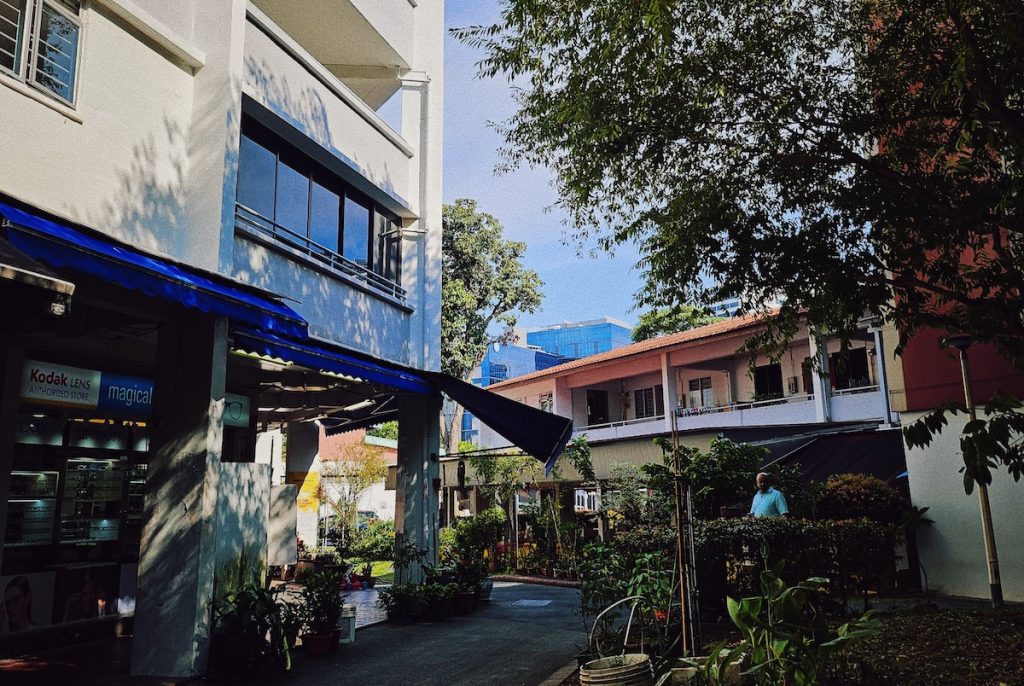
For someone who considers himself a night owl, I have to say these morning walks have been quite pleasant.
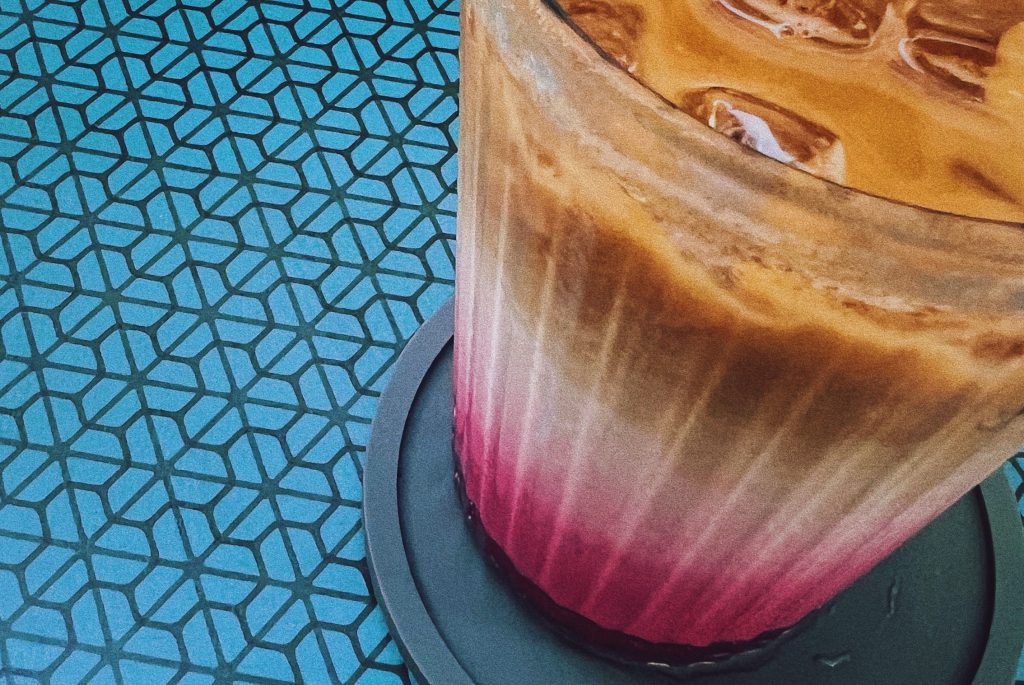
Trying to get my caffeine intake early to avoid that physical fatigue and lethargy.
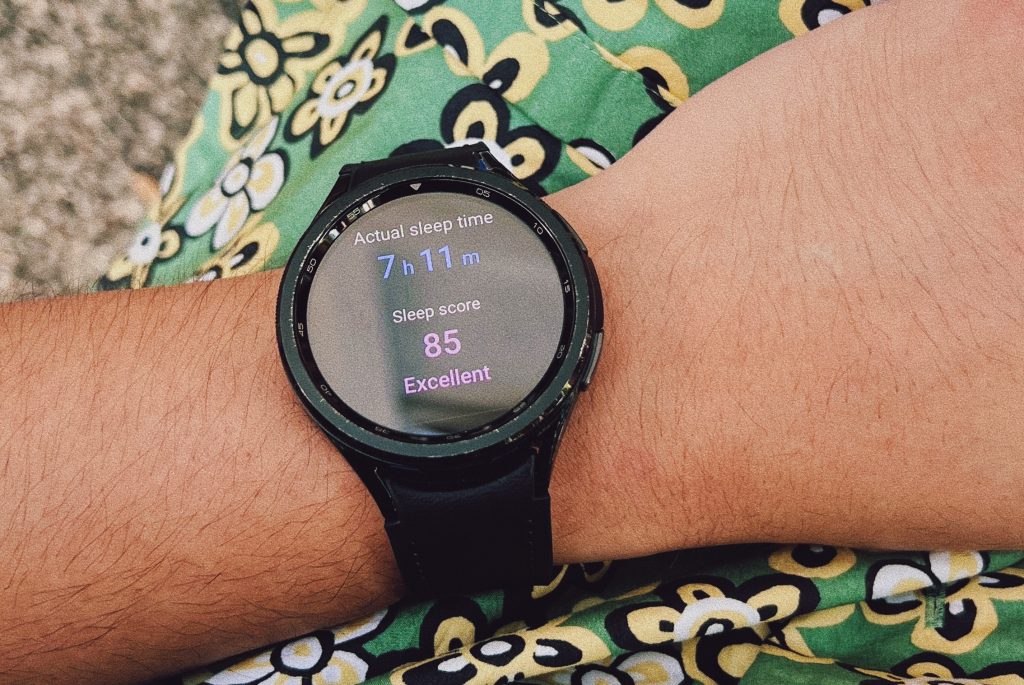
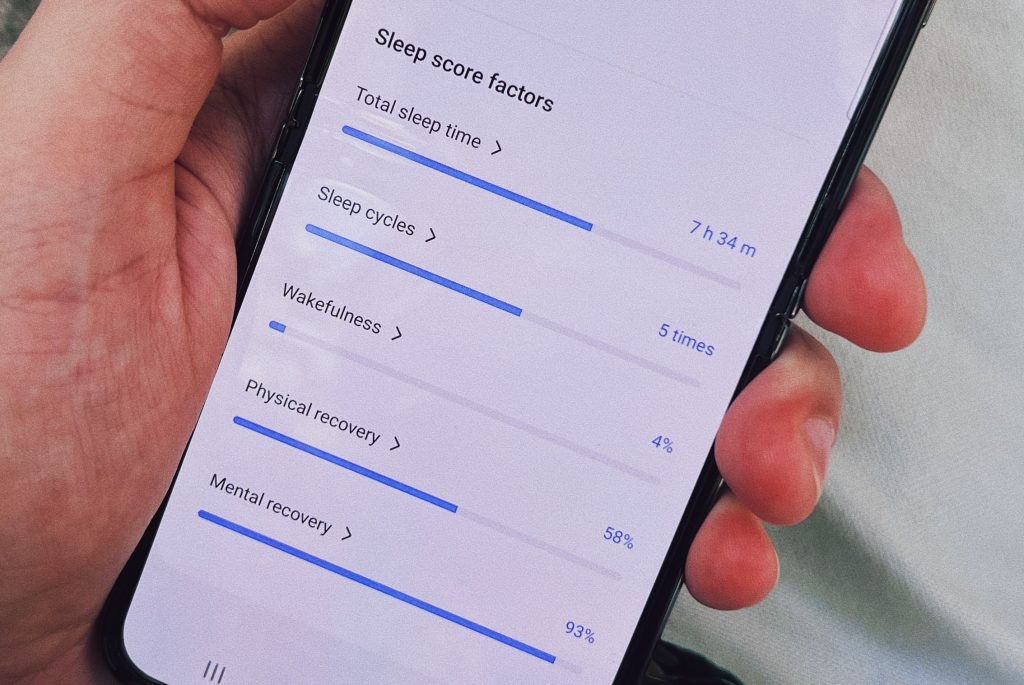
“Physical” and “Mental Recovery” levels look good-it’s a long way to go but seeing these compared to the last few days is quite heartening to see.
It Was All (Not Just) a Dream
The last few days has been anything but conclusive and is definitely a long way to go toward achieving that elusive perfect sleep but if anything, it pointed me to some telling signs that definitely works.
That unit of alcohol before bed definitely messes up your REM. Controlling the amount of caffeine taken throughout the day is something I have to work on. Those hot showers before bed, and the morning sunlight exposure, are an eye-opener. They sure helped my overall mood.
Beyond that, I also learnt to remember that as much as there were many things out of my control, and better left not worried about, there were things that I could do and start with from today.
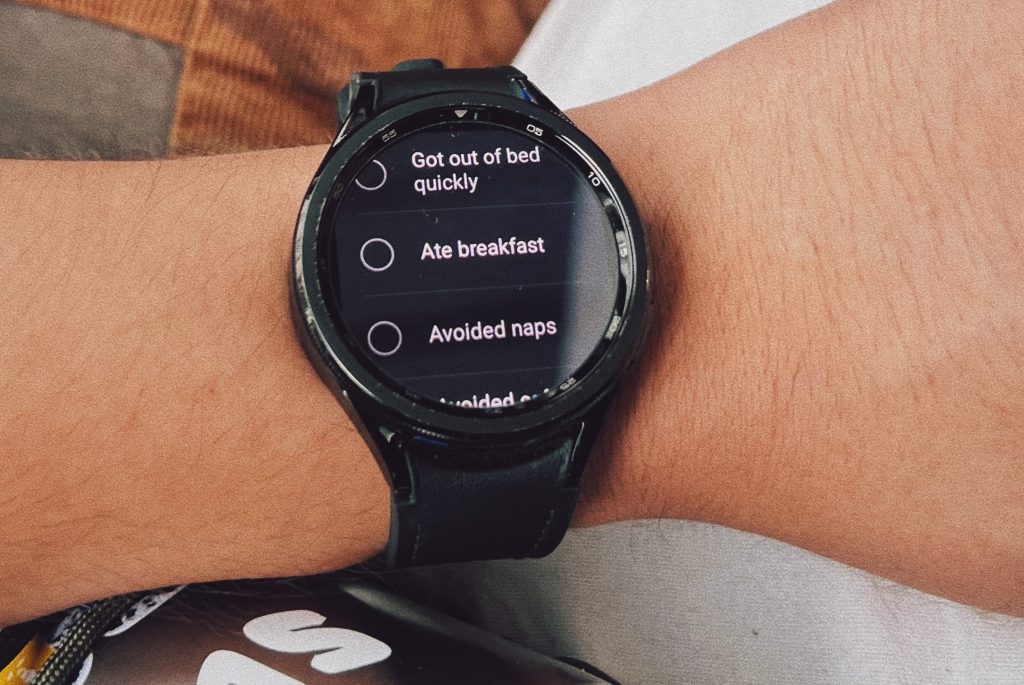
It’s the little things: like developing (and pursuing) those micro habits, being conscious of my lifestyle, and continuing to track my sleep. Smartwatches like the Samsung Watch6 Classic have shown to lead me closer to better sleep.
Getting a full eight hours (or more) is the stuff of dreams for most, if not all, of us here in Singapore. At the end of the day–lest we not forget that sleep is not a luxury–it’s all in our hands, literally.






